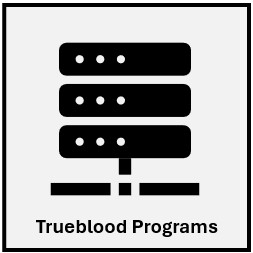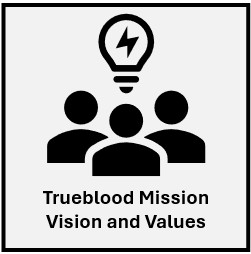
Latest News and Milestones
The Department of Social and Health Services has achieved a milestone in efforts to transform Washington's behavioral health system as we continue working toward successfully addressing the demand for competency services.
We focus our efforts on two specific areas:
- Completing in-jail competency evaluations within 14 days of signature or receipt of a court order.
- During 2024, the Department has been completing evaluations on average 83.3% of the time within 14 days across the state.
- On the east side of the state, there have been several months where 100% compliance was reached.
- Providing inpatient competency restoration services within seven days of signature or receipt of court orders.
- DSHS consistently offers Trueblood class members a bed in one of the state’s inpatient facilities within the mandated seven day time limit.
Why This Matters
All people involved in the criminal court system have the constitutional right to assist in their own defense. For there to be a fair trial, a person charged with a crime must:
- Understand the charges against them.
- Be able to assist their attorney in their own defense.
If either of these abilities seems to be impacted by a behavioral health condition, a defendant’s competency to stand trial may be raised, and an order for a competency evaluation is issued.
The court case is paused while an evaluation is completed to determine the defendant’s competency. If the person is found competent by the court, the next step is for them to stand trial. If the person is deemed not competent, the court can order the defendant to receive services to restore competency.
The work to have Washingtonians admitted for inpatient competency services within seven days and to complete jail-based evaluations within 14 days is key to honoring and respecting each person’s constitutional rights.
The Department’s Role
The Department of Social and Health Services is responsible for providing competency evaluation and inpatient restoration services. We work to ensure our clients receive these services in a timely manner.
To date, the state has invested more than $2 billion to evolve the entire competency system to enhance services and expand inpatient bed capacity for forensic competency restoration services. To be successful, this work must focus on the greater mental health system (for example, services for those who are civilly committed).
Competency Evaluations and Forensic Evaluators
- To improve compliance numbers for the 14-day evaluations, we have hired and trained nearly 60 additional forensic evaluators to perform competency evaluations throughout the state since 2015 to keep up with the increasing demand from the state. Forensic evaluators assess the defendant to determine if the person is competent. Recently, this has included hiring staff to work remotely out of state, which has had a significant impact in meeting evaluation demands.
- We have developed and strengthened existing partnerships with law enforcement, city and county jails, courts, attorneys, and local providers to ensure improved coordination for conducting evaluations.
Competency Restoration
- To help with the demand for inpatient beds, we worked with a large partner coalition to make changes to the statute allowing for outpatient competency restoration.
- In 2019, in addition to working to codify outpatient competency restoration, we created a new job class, forensic navigator, to work with people who are ordered for competency restoration. These forensic navigators guide defendants through the process of receiving treatment and regaining competency in the community so they may stand trial. Services may include behavioral health, physical health, housing support, vocational support, and other as-needed services.
- To help balance the inpatient system and allow bed space for forensic and civil patients, we focused on adding inpatient beds. As a result, we have opened a significant number of new beds at residential treatment facilities and have made additions and renovations at state hospitals.
- In 2023, we opened the Olympic Heritage Behavioral Health in Tukwila. This acquisition allowed us to provide 72 new beds for patients at Western State Hospital who have been civilly committed. As a result, the 72 vacated beds at WSH allow us to backfill with Trueblood class members as needed. In 2024, we added 86 beds at Eastern and Western State Hospitals and in the Maple Lane Campus at the Behavioral Health and Treatment Center. Furthermore, construction of a new 350-bed hospital on the grounds of Western State Hospital in Pierce County started in the fall of 2024.
Background
What is Trueblood
The Trueblood et al. v. Washington State DSHS lawsuit filed in 2014 challenged unconstitutional delays in competency evaluation and restoration services for people detained in jails.
The state is ordered to provide jail-based competency evaluations within 14 days and in-patient competency evaluation and restoration services within seven days of court orders and is fined by federal and local courts when those deadlines are not met.
We worked with plaintiffs to develop a Contempt Settlement Agreement, which established a plan for providing services to people involved in the criminal court system, so they are less likely to become involved in the criminal court system. This agreement is an opportunity for DSHS to take action to resolve issues raised in the lawsuit.
Timeline
- 2018 passage of Substitute Senate Bill 5444. This law authorized the creation of the Forensic Navigator Program and Outpatient Competency Restoration Program.
- July 1, 2019-June 30, 2021 | Phase 1 programs and services were rolled out in Pierce, Southwest and Spokane regions.
- July 1, 2021-June 30, 2023 | Phase 2: Programs and services were rolled out in the King region.
- July 1, 2023-June 30, 2025 | Phase 3: Programs and services were rolled out in Thurston-Mason and Salish regions and expansions done for Phase 1 and 2.

Find Out More
Sign up for our Trueblood listserv to receive regular updates.
Trueblood Mission, Vision and Values




